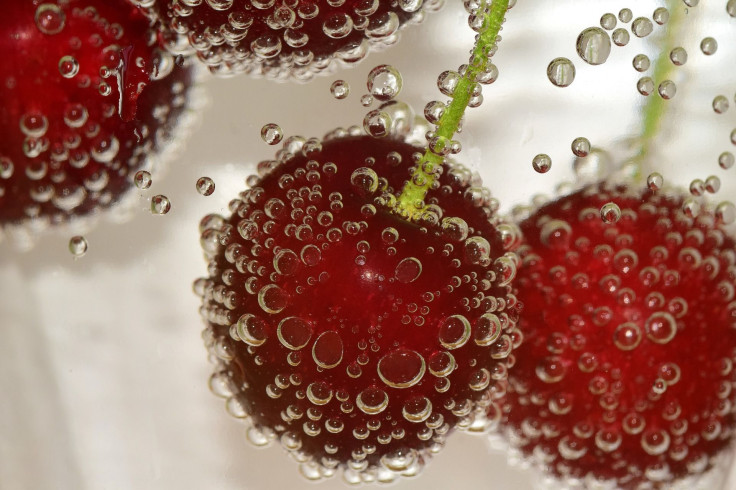Sparkling Water, An Alternative To Soda, May Be Harming Your Tooth Enamel Via Corrosive Acidity

Sparkling water has become one of the hottest food trends since avocado toast, and many use it as a healthier alternative to soda. However, the bubbly beverage might not be that much better for you, and specifically for your tooth enamel as the beverage's acidity may wear it down over time.
Read: Drinking Diet Sodas While Pregnant Could Cause Children To Be Overweight
Food Network delved into the the subject in a Q&A with Dr. Edmond R. Hewlett, professor of restorative dentistry and associate dean for outreach and diversity at the UCLA School of Dentistry as well as the spokesperson for the American Dental Association.
“The dental safety of sparkling water is not a heavily researched area,” Hewlett said. “What we do know, however, is that many commonly consumed beverages (for example, waters, juices, sodas and sports drinks) are, to varying degrees, acidic, as measured by their pH.”
Hewlett further explains that since acidic beverages can erode tooth enamel, sparkling waters could also be erosive as additives might increase their acidity.
According to the Today show, carbonated water is fizzy because of carbon dioxide. When you drink sparkling water, a chemical reaction turns that into carbonic acid, which accounts not just for the addicting crisp, but increased acidity too. And if you’re drinking sparkling water as much as you should be drinking regular water, then this could be a problem.
“If you’re sipping and keeping that acidic drink in your mouth and swishing around every time you sip, and if you do this often, multiple times a day, then that’s probably the most dangerous kind of behavior when it comes to tooth wear,” Dr. André Ritter, chair of the department of operative dentistry at the University of North Carolina School of Dentistry, told Today.
So does that mean drinking only a couple of cans a day is alright, then? Not exactly.
Read: Even More Reasons Not To Drink Soda: New Study Says It May Increase Dementia And Stroke Risk
“Unfortunately, there’s not a number we can put out there as a good answer because it depends on a number of variables,” Ritter said. “If you’re healthy and if you have normal saliva flow, you’re less vulnerable so your risk is lower… you can possibly drink a little bit more, more often.”
Before you decide to just go back to drinking soda, dentists agree that sparkling water is a much better alternative. Ritter explained that drinking mineral water could even be beneficial as it’s loaded with compounds that could actually counteract some damage.
If you’re worried that chugging LaCroix all day has taken a toll on your teeth, be on the lookout for sensitivity, discoloration, cracks or chips and pain, all signs of enamel erosion.
While plain water isn’t as fun as its sparkling counterpart, it’s still the safest for your teeth. Today explains that it's highest on the pH scale, which is a good thing, as the lower the number, the more acidic the beverage. Pure water has a pH of seven, while sodas are roughly a two. In lieu of giving up bubbles completely, Ritter advises drinking them at meal time, and of course, moderation is always key.
See Also:
Why Being Near The Water Is Good For Your Mind and Body
Does Cactus Water Have Any Real Health Benefits? A Look Into The Trend



























